Reading Book
THE ECHOES OF ALEKSANDAR RANKOVIĆ’S REPLACEMENT IN JUNE 1966 IN THE LIFE OF THE REPATRIATE MILOŠ CRNJANSKI
Emigration as a Heavy Burden
Persuading the great writer to return to his homeland from his life in exile lasted long and from many sides. He submitted only after receiving personal guarantees of the then vice-president of Yugoslavia and the most powerful man of UDB (National Security Office) Aleksandar Ranković. However, only two months after the return of the writer, Ranković was politically canceled at the plenary session in Brioni. How did this reflect on Crnjanski? We have before us a memory of a direct witness
By: Milovan Vitezović
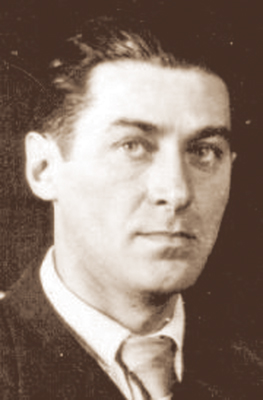 There are some television broadcasts which people gladly watch for who know how many times. The airing of such broadcasts is not a repetition in the real sense of the word. Among such broadcasts is the television adaptation of Miloš Crnjanski’s Novel about London. There are some television broadcasts which people gladly watch for who know how many times. The airing of such broadcasts is not a repetition in the real sense of the word. Among such broadcasts is the television adaptation of Miloš Crnjanski’s Novel about London.
We have seen the recent remake of the Novel about London. Correctly dramaturgically read novel in almost all drama moments. The directing is noble, corresponding to the state of the novel, with an extraordinary feeling for the balance of words and picture. Also balanced is the fate of the characters between nobility and poverty, so that the great nobility of poverty could be seen. Emigration is a heavy burden. The dark color of exile was hit, the darkest in the soul. Mrs. Mira Trailović directed this TV dramatization with full preciseness and consistency. This is for sure her best TV directing. The actors played complexly, in shades: the blink of the eye, a shudder on the face, a gesture, laughter and crying.
The whole impression is touching. However, such adapted Novel about London is watched while constantly thinking about Miloš Crnjanski, and with inevitable biographical connotations. The painful destiny of the main character Nikolai Riepin makes us think about the hard emigrant’s destiny of Miloš Crnjanski. This memorial also corresponds with it.
 I remember, in the long gone June of 1966, in the lobby of the Radio Beograd Studio 10, holding the chair for Miloš Crnjanski, amazed, on which he wouldn’t sit, in his great anxiety, something I didn’t understand at the time, and what even astonished me. I remember, in the long gone June of 1966, in the lobby of the Radio Beograd Studio 10, holding the chair for Miloš Crnjanski, amazed, on which he wouldn’t sit, in his great anxiety, something I didn’t understand at the time, and what even astonished me.
It was during the recording of an ambitions radio show about Crnjanski, the first after his return from England to Yugoslavia, from the new radio show series “The Literary Club”.
“The Literary Club” was being prepared as a series of exclusively designed shows which would announce a new era, and was made with a huge budget and same amount of ambition. I think that already three shows were recorded before further recording was canceled and the editorial board of “The Literary Club” dismissed. The first was dedicated to Shakespeare and his sonnets translated by Stevan Raičković, the second to Serbian medieval poetry selected and commented by professor Djordje Trifunović, and the third to Miloš Crnjanski. These shows, as wholes, have never gone on air, since the whole series, due to allegedly Serbian impulse, was placed to a bunker, to wait for some other times. The other times never came for them. The bunker was fatal. The shows were later disintegrated and used in parts in some other shows and in the gramophone production.
 “The Literary Club” was then designed as something completely new in the radio program. It was consigned to ambitious external collaborates, a new editorial board without old norms and prejudices, among whom only one was an employee of Radio Beograd. It was Vladimir Bunjac, editor in chief. Bunjac alone couldn’t defend the show in the then ideological and exceptionally awake Radio Beograd program collegiums, who blamed him for his conversion, for not being awake and for not defending the interests of the Radio Beograd program. In short, for not being a censurer. “The Literary Club” was then designed as something completely new in the radio program. It was consigned to ambitious external collaborates, a new editorial board without old norms and prejudices, among whom only one was an employee of Radio Beograd. It was Vladimir Bunjac, editor in chief. Bunjac alone couldn’t defend the show in the then ideological and exceptionally awake Radio Beograd program collegiums, who blamed him for his conversion, for not being awake and for not defending the interests of the Radio Beograd program. In short, for not being a censurer.
NEWS AS VERDICTS
But, let us go back to the recording of the show about Miloš Crnjanski, with him in person.
In order to achieve quality and perfection, “The Literary Club” was being recorded sometimes for several days in the then largest and best equipped Studio 10 in Radio Beograd in Makedonska Street. It was the same with the show where our main guest was Miloš Crnjanski, who arrived to the recording, so to say, directly from London. And this happened on the first day of recording. The recording was abruptly stopped, because the host of the show Branislav Surutka, the then most famous star of the Radio and Television Beograd, was invited to the main building of Radio Beograd to read the news from the Party plenary session. Surutka was always given the extraordinary news. In those summer days, the plenary session was held at the seaside, as the circumstances demanded, and because of something else: better security. Surutka’s voice was supposed to make the news additionally official, more than if read by any other announcer.
Surutka rushed to the main building, and Crnjanski remained standing by the microphone pole. Young and ambitions as I was, all the time I was trying to make a closer contact with the great writer, but without significant success. This was the opportunity. I entered the studio and invited him to come into the hallway, where the radio was already turned on. Along the way, I explained him that we are expecting important news. I left him in the hallway, among the others, and went to bring him a chair. You probably assume I was very fast.
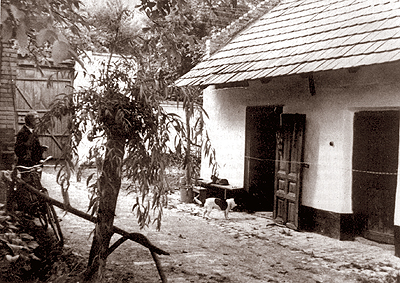 The news began. They were the news from the so-called Brioni plenary session, historically famous even today. Surutka read them as if reading history itself, energetically and categorically. The news began. They were the news from the so-called Brioni plenary session, historically famous even today. Surutka read them as if reading history itself, energetically and categorically.
When I returned carrying the chair, I noticed unusual anxiety in the great poet. Indeed, we were all excited, but his excitement was different. While we were being happy because of the “fall of the police” (how naively we believed!), impersonated in Aleksandar Ranković, Svetislav Stefanović and Vojin Lukić, the obvious shock of the great Miloš Crnjanski originated from concern, even fear.
I was a patient young writer with a chair in my hands, but the poet didn’t even think of sitting, he just automatically thanked me. There was something grievous in his eyes. I didn’t understand him, so I considered this gratitude as refusing any contact.
UNDER THE STRAŽILOVO SORROW
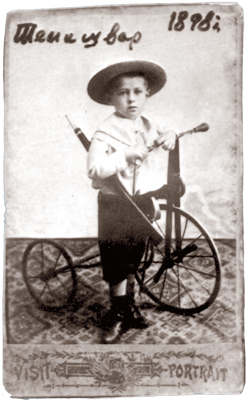 Surutka was reading the news and the report for about half an hour. Surutka was reading the news and the report for about half an hour.
We continued the show with two kinds of excitement. Before the news, Crnjanski was cheery even when reading elegies, now he was dark even in dithyrambs. Lament over Belgrade had a testamentary, heavy voice sound. As the Radio Television Belgrade Production of Gramophone Records used those recordings later for making gramophone records where Miloš Crnjanski reads his poems and gives his view of poetry, one could notice sour anxiety in certain moments, as if Crnjanski, in certain places (the order in the records is different from the order of recording – before and after the news) speaks with great uneasiness which transfers to the listener, who becomes convinced that the poet is speaking to him in fear.
We recorded until late in the night and it was clear to everyone that Miloš Crnjanski was different, but we all thought it was due to tiredness.
After the recording, I offered to escort him to the “Excelsior” hotel, where he temporarily stayed with his wife. Surprisingly, he accepted, although young poets can be real pests for old poets.
We felt the scent of linden trees in Makedonska Street, and walked the short distance for a long time. I was chatty and thoughtless along the way. Crnjanski was immersed in thoughts and quiet, what I metaphorically understood as the so-called Stražilovo sorrow.
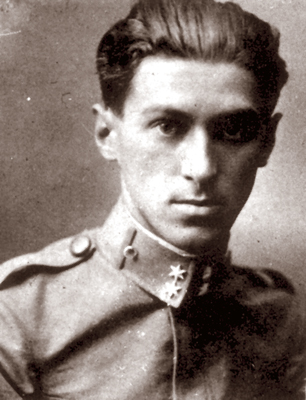 While we were talking in front of the “Excelsior”, I had an impression that he was observing the hotel lobby through the open door with a feverish glance. I even asked: “Is somebody waiting for you?” He said: “No… I hope not!” His hope was truly sincere and from the heart. Since there wasn’t anyone but the receptionist in the empty hotel, his hope enlivened him, I even think it relieved him, he became more cheerful and I was convinced that the walk and the cool night did him well. He went to the reception to check “whether Mrs. Vida came back from her friends”, without releasing me: “If she is not back, we will have a drink.” Vida wasn’t back. So we sat at one of the three or four tables in the improvised summer garden in front of the hotel, on the boardwalk of the Street of Miloš the Great. I joked that it is not by chance – Miloš Crnjanski in the Street of Miloš the Great, and had three bears until Vida Crnjanski appeared. While we were talking in front of the “Excelsior”, I had an impression that he was observing the hotel lobby through the open door with a feverish glance. I even asked: “Is somebody waiting for you?” He said: “No… I hope not!” His hope was truly sincere and from the heart. Since there wasn’t anyone but the receptionist in the empty hotel, his hope enlivened him, I even think it relieved him, he became more cheerful and I was convinced that the walk and the cool night did him well. He went to the reception to check “whether Mrs. Vida came back from her friends”, without releasing me: “If she is not back, we will have a drink.” Vida wasn’t back. So we sat at one of the three or four tables in the improvised summer garden in front of the hotel, on the boardwalk of the Street of Miloš the Great. I joked that it is not by chance – Miloš Crnjanski in the Street of Miloš the Great, and had three bears until Vida Crnjanski appeared.
After Vida’s “Did you hear?” the unease returned to the face of Miloš Crnjanski.
With this uneasiness full of uncertainty, which couldn’t be hidden, they entered the hotel.
WHILE FEAR PETRIFIES
Further recording of the show with Crnjanski was stopped the following day. I don’t know the details, because then I was an external cooperate, and as such wasn’t given any explanations. I later found out the details of long persuasions of great friends of our literature, persuading Crnjanski to return to his country from London, to return to his language, since his life cannot be separated from his books. People traveled to London and unloaded suitcases full of stories before Crnjanski. He ardently wished to come back, but kept postponing the return, hesitating and in fear. It took long to persuade him that nothing bad will happen to him in Yugoslavia, because there is no reason for it, that his exile is reasonless. Those were the promises of Isaković, Ćosić, Mladenović… However, Crnjanski waited for other guarantees. Finally, this came to an end, when Aleksandar Ranković personally gave some assurances… Only after this, Miloš Crnjanski returned to Yugoslavia in the spring of 1966, to his Belgrade, over which he lamented in London.
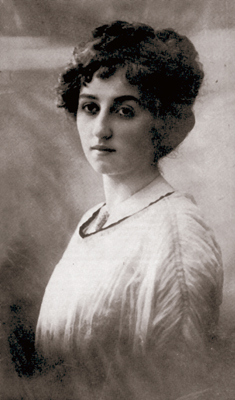 The great drama of the poet Miloš Crnjanski, which I accidentally witnessed in June 1966, could be understood from this. What would happen with his guarantee received from Aleksandar Ranković? Would his return also be a proof against Ranković, asked the poet’s bad conscience? The damn warm and touching inscription in the books of the collected works could be a big proof for anything in the hands of any conscientious policeman, and with a little animosity, a lot could be packed against him. He feared of a lot of things that could happen to him, because “there was nothing against him” wasn’t valid any more. The great drama of the poet Miloš Crnjanski, which I accidentally witnessed in June 1966, could be understood from this. What would happen with his guarantee received from Aleksandar Ranković? Would his return also be a proof against Ranković, asked the poet’s bad conscience? The damn warm and touching inscription in the books of the collected works could be a big proof for anything in the hands of any conscientious policeman, and with a little animosity, a lot could be packed against him. He feared of a lot of things that could happen to him, because “there was nothing against him” wasn’t valid any more.
So Crnjanski trembled before the police which would come after Ranković’s police. He had already met, and perhaps overcome, one fear, if two months were enough for overcoming it, when another one appeared, more uncertain, more unknown… I was an accidental witness of that fear, which Miloš Crnjanski hid and petrified inside of him. I wouldn’t assume whether this was his greatest fear, but its size is immeasurable. Oh, what a paradox of fate – the greatest fear from the consequences of the fall of Aleksandar Ranković and his politics was suffered by the one who was under the surveillance of that Ranković’s police, far away, even in exile, and which, on that basis, according to its reports, guaranteed for his correctness as a Yugoslav citizen abroad.
***
Inscription
For the occasion of Miloš Crnjanski’s return, his collected works were printed in Belgrade, in order to make his arrival even more magnificent… There is not a greater honor for a living writer! According to Momčilo Milankov, Crnjanski himself arranged that the first copies of his collected works, with the writer’s inscription expressing his great gratitude, reach the desk of the then vice-president of Yugoslavia Aleksandar Ranković, only two days before the Brioni plenary session and Ranković’s fall.
***
The Jury
The image of Miloš Crnjanski standing in the hallway in front of the radio, listening to the first news from the Brioni plenary session, always returns to my memory as an image of a man standing before a jury, listening to his verdict. In this case, as if the verdict was announced to him by destiny itself.
***
The Fountain
In front of the “Excelsior”, we spoke about the state of the fountain in the Great Park in Užice, which Dobrosav Ružić, poet and minister of education in the Kingdom of Serbia in the first decade of the XX century, gave as a gift to his hometown. Dobrosav Ružić was the father of Vida Crnjanski, Miloš’s father in law. The poet was interested in restoring this fountain. (Later he also expressed his interest to other, more powerful people, but the officials in Užice never allowed him to do it, refusing any contact with the poet.)
|
